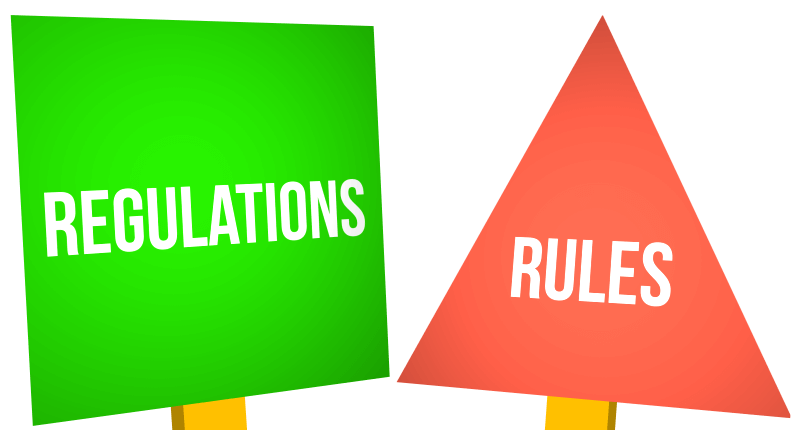New Jersey Boating Laws and Regulations

Official New Jersey Boating License - NJMVC Approved Course & Exam
To operate a motorboat or PWC in New Jersey you must carry a boating safety education certificate proving you have passed an approved boating safety education course.
New Jersey State Boat Registration
To operate any titled vessel or any mechanically propelled vessel in New Jersey, you must register your boat. Some exemptions apply. Registration number must be display on each side of the bow, as well as the validation decals.
How do I transfer ownership of a used boat in New Jersey?
- Obtain a Bill of Sale
- Obtain the title
- Complete a Registration Application
- Pay the fees
- Obtain new registration and decals
Who needs boater's license in New Jersey State?
Any person operating a motorized vessel on the waters of New Jersey* must possess a New Jersey Boating Safety Certificate.
Age restrictions for boaters in New Jersey State
You must be at least 12 years old to take the course. And at least 16 years old to operate a PWC. A person aged 13 to 16 may operate vessels powered solely by an electric motor, or vessels 12 feet in length or longer with a motor that is less than 10 horsepower
New Jersey State PFD requirements
-
Each vessel must have at least one U.S. Coast Guard (USCG) approved PFD for each person on board and for anyone being towed.
-
Boats 16 feet or more in length must carry at least one Type IV - throwable USCG-approved PFD.
-
Any person being towed on water skis, other towed devices, or operating or riding on a personal watercraft (PWC) must wear a properly fitted USCG-approved PFD.
Operating under the influence of drugs and alcohol in New Jersey State
It is unlawful to operate a vessel or under the influence of alcohol or drugs. Persons who have a BAC of 0.08% or greater are considered operating under the influence (OUI).
Boating accident in New Jersey State
If you are involved in a boating accident you have to file a full report with the New Jersey State Police, Marine Law Enforcement station in the area where the accident occurred if the accident results in the death or disappearance of a person, or personal injury, or property damage in excess of $2,000.
New Jersey State Marine toilets - Littering Oil Spills
It is illegal to discharge or leave sewage or waste containers in New Jersey waters. You must have a US Coast Guard-approved marine sanitation device (MSD) on board to use a marine toilet on the waters of the New Jersey State.
If you are operating a vessel on the waters of the New Jersey State, it is required to bring your vessel to a stop after having been requested or signaled to do so by a law enforcement officer. You must comply with the directives of that officer.
Personal Watercraft (PWC) in New Jersey State
In addition to the regulations and laws regarding power vessels, PWC are also subject to the following laws and regulations in the state of New Jersey:
-
PWC may not be operated between sunset and sunrise or during periods of restricted visibility
-
PWC may not be operated on the Point Pleasant or Cape May canals
-
PWC must not exceed minimum headway speed when within 100 feet of buoys or signs indicating swimming zone boundaries, the shoreline, people in the water, or residential dwelling units
-
PWC must not be operated so as to become airborne with 100 feet of another vessel
-
PWC must not be operated by any person under the age of 16
Unlawful boating operation in New Jersey State
Operators must navigate in a reasonable and prudent manner at all times.
It is illegal to operate vessels in an unsafe manner, such as operating a boat while under the influence of alcohol or drugs; overloading; or bowriding, or riding on a seatback or gunwale.
All vessels should be operated at a speed that allows time and distance to take necessary action to avoid a collision. Proceed at slow speed when within 200 feet of any marina, pier, dock, or wharf.
Towed water sports in New Jersey State
Any person who is being towed behind a boat, in an activity such as water skiing, must wear a properly fitted USCG-approved Type I, II, III or Type V Hybrid PFD. In addition to the operator, there must be a competent observer (wide-angle mirrors are not permitted) to observe the skier being towed. Waterskiing, aquaplaning, or towing skiers and aquaplanes is permitted only between sunrise and sunset.
Non-Tidal Boat License in New Jersey
You also require a separate boat license in New Jersey if you operate your boat on non-tidal waters. The license is issued by the Motor Vehicle Commission; you must present your New Jersey Boating Safety Certificate in order to obtain your license.
